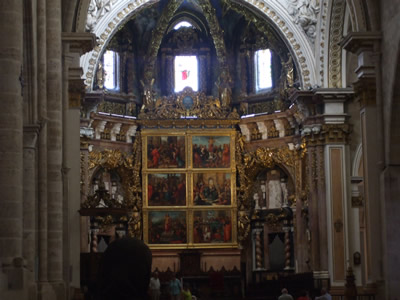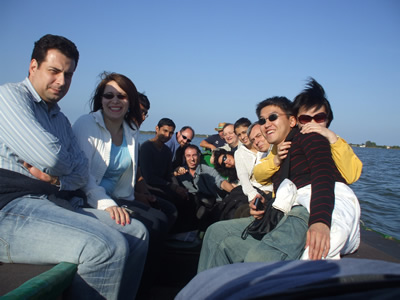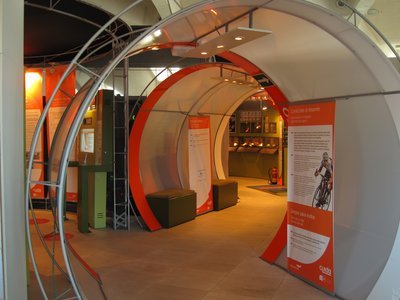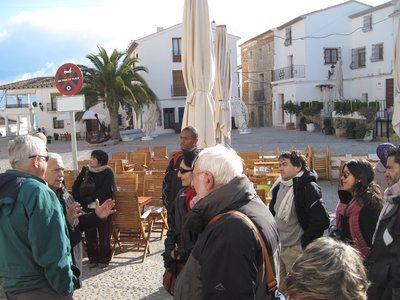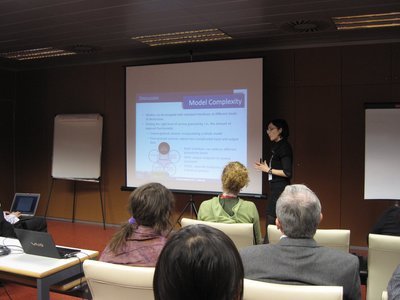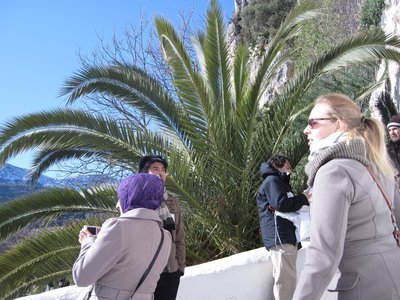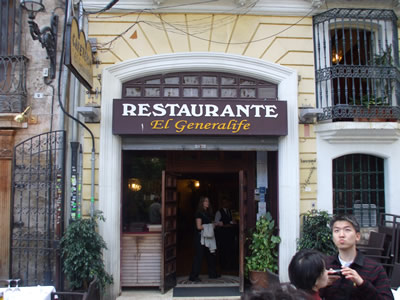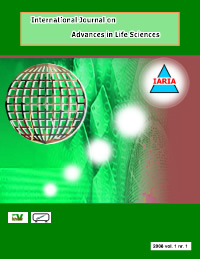eKNOW 2020 - The Twelfth International Conference on Information, Process, and Knowledge Management
November 21, 2020 - November 25, 2020
eKNOW 2020: Call for Papers
The variety of the systems and applications and the heterogeneous nature of information and knowledge representation require special technologies to capture, manage, store, preserve, interpret and deliver the content and documents related to a particular target.
Progress in cognitive science, knowledge acquisition, representation, and processing helped to deal with imprecise, uncertain or incomplete information. Management of geographical and temporal information becomes a challenge, in terms of volume, speed, semantic, decision, and delivery.
Information technologies allow optimization in searching an interpreting data, yet special constraints imposed by the digital society require on-demand, ethics, and legal aspects, as well as user privacy and safety.
Nowadays, there is notable progress in designing and deploying information and organizational management systems, experts systems, tutoring systems, decision support systems, and in general, industrial systems.
Capturing, representing, and manipulating knowledge was and still is a fascinating and extremely useful challenge from both theoretical and practical perspective. Using validated knowledge for information and process management, and for decision support mechanisms raises a series of questions the conference is aimed at.
We solicit both academic, research, and industrial contributions. We welcome technical papers presenting research and practical results, position papers addressing the pros and cons of specific proposals, such as those being discussed in the standard fora or in industry consortia, survey papers addressing the key problems and solutions on any of the above topics short papers on work in progress, and panel proposals.
Industrial presentations are not subject to the format and content constraints of regular submissions. We expect short and long presentations that express industrial position and status.
Tutorials on specific related topics and panels on challenging areas are encouraged.
The topics suggested by the conference can be discussed in term of concepts, state of the art, research, standards, implementations, running experiments, applications, and industrial case studies. Authors are invited to submit complete unpublished papers, which are not under review in any other conference or journal in the following, but not limited to, topic areas.
All topics and submission formats are open to both research and industry contributions.
eKNOW 2020 conference tracks:
Knowledge fundamentals
Knowledge acquisition, processing, and management; Linguistic knowledge representation; Knowledge modeling and virtualization; Types of knowledge: structural, behavioral, relationships, etc.; Knowledge representation: visual-picture, connectionist model, semi-structured [a la workflow], structured/formal; Knowledge acquisition status: potential new knowledge, guessed semantics, confirmed semantics, auditing confirmed semantics, etc.; Knowledge update: probable insertion, validated insertion, auditing the insertion periodically based on new knowledge, etc.
Advanced topics in Deep/Machine learning
Distributed and parallel learning algorithms; Image and video coding; Deep learning and Internet of Things; Deep learning and Big data; Data preparation, feature selection, and feature extraction; Error resilient transmission of multimedia data; 3D video coding and analysis; Depth map applications; Machine learning programming models and abstractions; Programming languages for machine learning; Visualization of data, models, and predictions; Hardware-efficient machine learning methods; Model training, inference, and serving; Trust and security for machine learning applications; Testing, debugging, and monitoring of machine learning applications; Machine learning for systems.
ML: Knowledge and Information processing using Machine Learning
Machine learning models (supervised, unsupervised, reinforcement, constrained, etc.);
Generative modeling (Gaussian, HMM, GAN, Bayesian networks, autoencoders, etc.);
Explainable AI (feature importance, LIME, SHAP, FACT, etc.);
Bayesian learning models;
Prediction uncertainty (approximation learning, similarity);
Training of models (hyperparameter optimization, regularization, optimizers);
Active learning (partially labels datasets, faulty labels, semi-supervised);
Applications of machine learning (recommender systems, NLP, computer vision, etc.);
Data in machine learning (no data, small data, big data, graph data, time series, sparse data, etc.)
Trends on annotation and extraction
Natural Languages-based features and systems; Annotation handling (multilingual, semantic, shared, open, prosody, etc.); Annotation as a Service (AaaS); Handling argument-based knowledge; Event-based knowledge; Tagging and supertagging; Extraction patterns; Uncertain reasoning; Visual error analysis; Domain-specific paraphrase extraction; Tweets and sentence compression; Role labeling semantic; Heterogeneous annotations
Trends on news and social media
New events-based knowledge;In-context news creation; Superlative expressions; News highlights generation systems; News special summarization systems (e.g, for blind and/or visually impaired people); Sentiment classification (emotion, irony, sarcasm, rhetorical questions, opinion, etc.); Rumor dynamics and social media; Contextual pragmatic models;; Social prediction; Prediction semantic analysis; Predictability of distrust; Aspect-based sentiment analysis; Argument generation systems; Relevance of citation recommendation; Retrieval bias and retrieval performance; High-speed captioning images; Language models for images; Participative KM platforms
Trends on knowledge processing support and mechanisms
Open knowledge bases; Structured knowledge bases; Big knowledge applications; Linked knowledge objects; Knowledge datasets; Machine translation systems; Convolution neural networks; Hybrid representations and equivalent semantics; Processing bilingual information; Topic trends and temporal signatures; Cross-view features; Pattern-based knowledge; Ranking optimization in context; Concept-based classification and ranking; KM design for life long learning and long term uses
Knowledge identification and discovery
Mining for knowledge; Knowledge identification: semantic-ID, etc.; Knowledge discovery: how to express knowledge requests?, how to find knowledge?, etc.; Knowledge refinement: after many acquisitions, former knowledge can change semantically or structurally, etc.; Knowledge clustering
Knowledge management systems
Knowledge data systems; Industrial systems; Context-aware and self-management systems; Imprecision/Uncertainty/Incompleteness in databases; Cognitive science and knowledge agent-based systems; Databases and mobility in databases; Zero-knowledge systems; Expert systems; Tutoring systems; Digital libraries
Knowledge management (KM) and event processing (EP)
Methodologies and approaches to overcome technical hurdles and improve the interplay between KM and EP; Applications from various domains (e.g. financial, manufacturing, trading, telecommunication, service), which benefit from an integrated KM and EP
Knowledge semantics processing and ontology
Dynamic knowledge ontology; Collaborative knowledge ontology; Knowledge matching; Contextual reasoning; Tools for knowledge ontology; Context-based information extraction; Knowledge trading systems; Knowledge exchange portals; Cognitive sytems and knowledge processing; Human aspects in knowledge processing
Technological foresight and socio-economic evolution modelling
Anticipatory networks and decisions; Expert information management; Foresight support systems; Generating technological recommendations and rankings; Information society evolution; Online and real-time Delphi; Ontological knowledge bases of technologies and products; Roadmapping support systems; Strategic support systems; Technological information fusion; Technological policy decision support systems
Process analysis and modeling
Analysis and development of business architectures; Data mining and information retrieval for business processes; Business process modelling; Business process composition; Analysis and management lifecycle; Reasoning on business processes; Optimization of business processes; Adaptive business processes; Business process reengineering; Integration of processes; Process discovery; Business process quality; Resource allocation
Process management
Criteria for measurement of business process models; Monitoring business processes; Business process visualization; Management of business process integration; On-demand business transformation; Performance measurement; Conformance and risk management; Prediction; Business transformation; Packaged industry applications; Industry solutions
Information management
Informational mining/retrieval/classification; Geographic and spatial data Infrastructures; Information technologies; Information management systems; Information ethics and legal evaluations; Optimization and information technology; Organizational information systems
Decision support systems
Multi-criteria decision theory; Artificial intelligence; Adaptive design for decision support systems; Support technologies: knowledge-driven, data-driven, model-driven, and geographically-driven systems; Support methods: artificial neural networks, fuzzy logic, and genetic/evolutionary algorithms; Modeling, interfaces, and performance; Applications using decision support systems
Deadlines:
Submission | Sep 03, 2020 |
Notification | Oct 02, 2020 |
Registration | Oct 14, 2020 |
Camera ready | Oct 20, 2020 |
Deadlines differ for special tracks. Please consult the conference home page for special tracks Call for Papers (if any).
INSTRUCTION FOR THE AUTHORS
Authors of selected papers will be invited to submit extended versions to one of the IARIA Journals.
Publisher: XPS (Xpert Publishing Services)
Archived: ThinkMindTM Digital Library (free access)
Prints available at Curran Associates, Inc.
How to submit to appropriate indexes.
Only .pdf or .doc files will be accepted for paper submission. All received submissions will be acknowledged via an automated system.
Contribution types
- regular papers [in the proceedings, digital library]
- short papers (work in progress) [in the proceedings, digital library]
- ideas: two pages [in the proceedings, digital library]
- extended abstracts: two pages [in the proceedings, digital library]
- posters: two pages [in the proceedings, digital library]
- posters: slide only [slide-deck posted on www.iaria.org]
- presentations: slide only [slide-deck posted on www.iaria.org]
- demos: two pages [posted on www.iaria.org]
FORMATS
Only .pdf or .doc files will be accepted for paper submission. All received submissions will be acknowledged via an automated system.
Final author manuscripts will be 8.5" x 11", not exceeding 6 pages; max 4 extra pages allowed at additional cost.
Helpful information for paper formatting for MS Word can be found here.
There is a community provided LaTeX template: the CTAN package iaria (with full IARIA formatting rules, including IARIA citation style, but for providing citation style it is tightly bound to pdflatex+biblatex+biber). In addition, there is also iaria-lite (not bound to pdflatex+biblatex+biber, but compatible with any TeX stack; thus, it cannot provide the IARIA citation formattings, but only the titlepage and content-related IARIA formatting rules). Based on the iaria package, there is a minimal working example as Overleaf template. When you are using the LaTeX templates, please still adhere to the additional editorial rules.
Slides-based contributions can use the corporate/university format and style.
Your paper should also comply with the additional editorial rules.
Once you receive the notification of contribution acceptance, you will be provided by the publisher an online author kit with all the steps an author needs to follow to submit the final version. The author kits URL will be included in the letter of acceptance.
We would recommend that you should not use too many extra pages, even if you can afford the extra fees. No more than 2 contributions per event are recommended, as each contribution must be separately registered and paid for. At least one author of each accepted paper must register to ensure that the paper will be included in the conference proceedings and in the digital library, or posted on the www.iaria.org (for slide-based contributions).
CONTRIBUTION TYPE
Regular Papers (up to 6-10 page article -6 pages covered the by regular registration; max 4 extra pages allowed at additional cost- ) (oral presentation)
These contributions could be academic or industrial research, survey, white, implementation-oriented, architecture-oriented, white papers, etc. They will be included in the proceedings, posted in the free-access ThinkMind digital library and sent for indexing. Please submit the contributions following the instructions for the regular submissions using the "Submit a Paper" button and selecting the appropriate contribution type. 12-14 presentation slides are suggested.
Short papers (work in progress) (up to 4 pages long) (oral presentation)
Work-in-progress contributions are welcome. These contributions represent partial achievements of longer-term projects. They could be academic or industrial research, survey, white, implementation-oriented, architecture-oriented, white papers, etc. Please submit the contributions following the instructions for the regular submissions using the "Submit a Paper" button and selecting the contribution type as work in progress. Contributors must follow the conference deadlines, describing early research and novel skeleton ideas in the areas of the conference topics. The work will be published in the conference proceedings, posted in the free-access ThinkMind digital library and sent for indexing. For more details, see the Work in Progress explanation page. 12-14 presentation slides are suggested.
Ideas contributions (2 pages long) (oral presentation)
This category is dedicated to new ideas in their very early stage. Idea contributions are expression of yet to be developed approaches, with pros/cons, not yet consolidated. Ideas contributions are intended for a debate and audience feedback. Please submit the contributions following the instructions for the regular submissions using the "Submit a Paper" button and selecting the contribution type as Idea. Contributors must follow the conference deadlines, describing early research and novel skeleton ideas in the areas of the conference topics. The work will be published in the conference proceedings, posted in the free-access ThinkMind digital library and sent for indexing. For more details, see the Ideas explanation page. 12-14 presentation slides are suggested.
Extended abstracts (2 pages long) (oral presentation)
Extended abstracts summarize a long potential publication with noticeable results. It is intended for sharing yet to be written, or further on intended for a journal publication. Please submit the contributions following the instructions for the regular submissions using the "Submit a Paper" button and selecting the contribution type as Extended abstract. Contributors must follow the conference deadlines, describing early research and novel skeleton ideas in the areas of the conference topics. The work will be published in the conference proceedings, posted in the free-access ThinkMind digital library and sent for indexing. 12-14 presentation slides are suggested.
Posters (paper-based, two pages long) (oral presentation)
Posters are intended for ongoing research projects, concrete realizations, or industrial applications/projects presentations. The poster may be presented during sessions reserved for posters, or mixed with presentation of articles of similar topic. A two-page paper summarizes a presentation intended to be a POSTER. This allows an author to summarize a series of results and expose them via a big number of figures, graphics and tables. Please submit the contributions following the instructions for the regular submissions using the "Submit a Paper" button and selecting the contribution type as Poster Two Pages. Contributors must follow the conference deadlines, describing early research and novel skeleton ideas in the areas of the conference topics. The work will be published in the conference proceedings, posted in the free-access ThinkMind digital library and sent for indexing. 8-10 presentation slides are suggested. Also a big Poster is suitable, used for live discussions with the attendees, in addition to the oral presentation.
Posters (slide-based, only) (oral presentation)
Posters are intended for ongoing research projects, concrete realizations, or industrial applications/projects presentations. The poster may be presented during sessions reserved for posters, or mixed with presentation of articles of similar topic. The slides must have comprehensive comments. This type of contribution only requires a 8-10 slide-deck. Please submit the contributions following the instructions for the regular submissions using the "Submit a Paper" button and selecting the contribution type as Poster (slide-only). The slide-deck will be posted, post-event, on www.iaria.org.
8-10 presentation slides are suggested. Also a big Poster is suitable, used for live discussions with the attendees, additionally to the oral presentation.
Presentations (slide-based, only) (oral presentation)
These contributions represent technical marketing/industrial/business/positioning presentations. This type of contribution only requires a 12-14 slide-deck. Please submit the contributions following the submission instructions by using the "Submit a Paper" button and selecting the contribution type as Presentation (slide-only). The slide-deck will be posted, post-event, on www.iaria.org.
12-14 presentation slides are suggested.
Demos (two pages) [posted on www.iaria.org]
Demos represent special contributions where a tool, an implementation of an application, or a freshly implemented system is presented in its alfa/beta version. It might also be intended for thsoe new application to gather the attendee opinion. A two-page summary for a demo is intended to be. It would be scheduled in special time spots, to ensure a maximum attendance from the participants. Please submit the contributions following the submission instructions by using the "Submit a Paper" button and selecting the contribution type as Demos. The Demos paper will be posted, post-event, on www.iaria.org.
Tutorial proposals
Tutorials provide overviews of current high interest topics. Proposals should be for 2-3 hour long. Proposals must contain the title, the summary of the content, and the biography of the presenter(s). The tutorial slide decks will be posted on the IARIA site.
Please send your proposals to tutorial proposal
Panel proposals
The organizers encourage scientists and industry leaders to organize dedicated panels dealing with controversial and challenging topics and paradigms. Panel moderators are asked to identify their guests and manage that their appropriate talk supports timely reach our deadlines. Moderators must specifically submit an official proposal, indicating their background, panelist names, their affiliation, the topic of the panel, as well as short biographies. The panel slide deck will be posted on the IARIA site.
Please send your proposals to panel proposal
